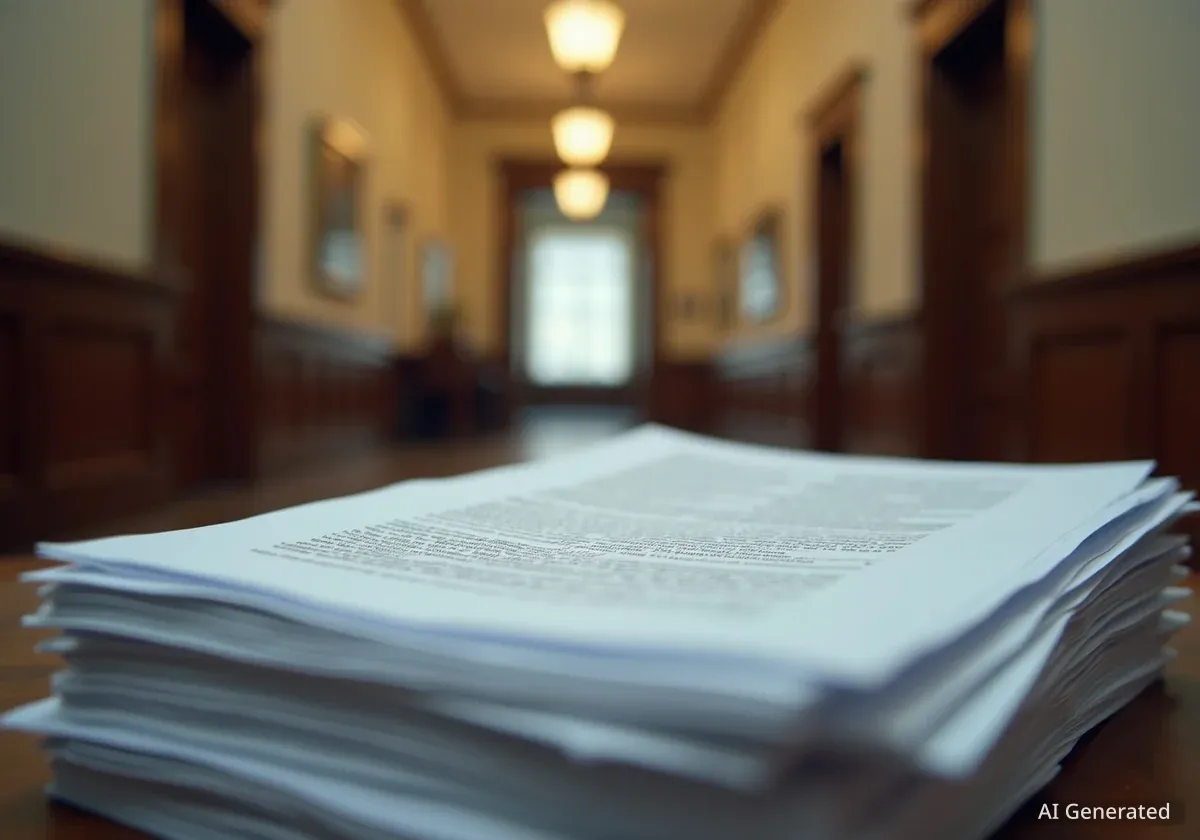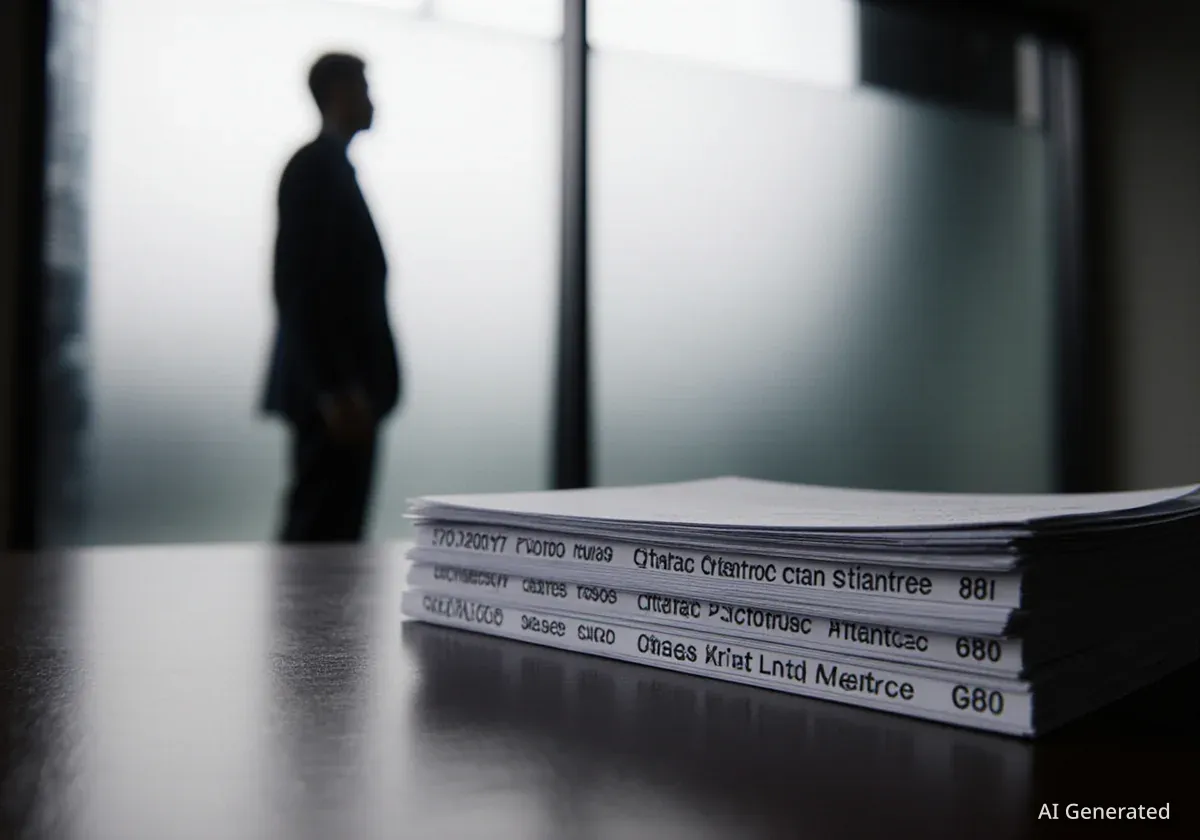A prominent Philadelphia real estate agent has pleaded guilty to federal charges, admitting to a multi-year scheme where he defrauded investors of more than $3 million. Jonathan Barach, 46, confessed to soliciting loans for non-existent property renovation projects and using the funds for personal expenses, including extensive sports gambling.
Key Takeaways
- Jonathan Barach, a Center City real estate agent, pleaded guilty to wire fraud.
- He raised over $3 million from investors between July 2017 and April 2021.
- The loans were solicited for fake property flipping and renovation projects.
- Barach used the money for sports gambling, personal debts, jewelry, and other expenses.
- Approximately $1.4 million remains outstanding to the defrauded lenders.
- He faces a potential maximum sentence of 30 years in prison.
Details of the Fraudulent Scheme
Federal prosecutors outlined a scheme that ran for nearly four years, from July 2017 to April 2021. During this period, Jonathan Barach systematically misled a group of individuals and businesses into providing substantial loans. He presented these as short-term financing opportunities with attractive returns.
The funds were supposedly intended to support builders and contractors on various real estate ventures. These included flipping distressed properties and completing large-scale renovations, common and often profitable activities in the real estate sector. However, the projects Barach described to his lenders were entirely fictitious.
According to the charges, Barach was fully aware that the projects did not exist when he solicited the investments. He created a false pretext of legitimate business activity to gain the trust of his victims and secure their capital.
A Facade of Legitimacy
Barach co-founded the Barach Group in 2011, a real estate firm that provided traditional services. Before being taken down, the company's website boasted of handling more than $300 million in transactions. This established public profile and history of legitimate business likely helped him appear credible to potential investors, making the fraudulent solicitations more convincing.
Misappropriation of Investor Funds
Instead of funding property developments, the more than $3 million raised from investors was diverted for Barach's personal use. Court documents reveal a pattern of spending that had no connection to any legitimate business enterprise. A significant portion of the money was used to fuel a gambling habit.
Prosecutors stated that Barach withdrew large amounts of the loan funds in cash. He also transferred substantial sums directly to personal accounts held with casinos and online sportsbooks. This indicates a deliberate effort to move the money away from business accounts and use it for high-risk personal activities.
The misappropriated funds were also used to cover a range of other personal expenses, including:
- Paying off existing personal debts
- Purchasing jewelry
- Buying tickets to sporting events
This spending pattern demonstrates a clear intent to defraud, as the capital was never applied to the purposes for which it was raised.
The Corporate Structure of the Deception
To facilitate the scheme, Barach utilized both his established company and a separate entity. While he was the principal agent for the well-known Barach Group, he also created a second company named TBG Real Estate LLC. This entity was used specifically to solicit and raise money for the fabricated projects.
By using a separate LLC, Barach may have attempted to create a layer of separation between his fraudulent activities and his primary real estate business. This is a common tactic in financial fraud cases, designed to obscure the flow of money and make the scheme harder to detect.
A Ponzi-Like Structure
The investigation revealed that Barach used funds from newer investors to pay back some of his earlier lenders. This practice is a hallmark of a Ponzi scheme, where money from new victims is used to create the illusion of profits for initial investors, thereby sustaining the fraud for a longer period.
Legal Consequences and Outstanding Debt
Barach's guilty plea is a formal admission to the charges of wire fraud and other related offenses. While he has repaid some of the money, prosecutors confirmed that he still owes approximately $1.4 million to his victims. This substantial outstanding balance represents the direct financial harm caused by his actions.
The charge of wire fraud is a serious federal offense, particularly when it involves millions of dollars and a prolonged, deliberate scheme to deceive. The use of electronic communications, such as emails or wire transfers, to execute the fraud is what brings the case under federal jurisdiction.
A sentencing hearing has been scheduled for February 2. Based on the charges, Barach faces a maximum possible sentence of 30 years in federal prison. The final sentence will be determined by a judge, who will consider the scope of the fraud, the amount of money stolen, the impact on the victims, and other factors outlined in federal sentencing guidelines.





